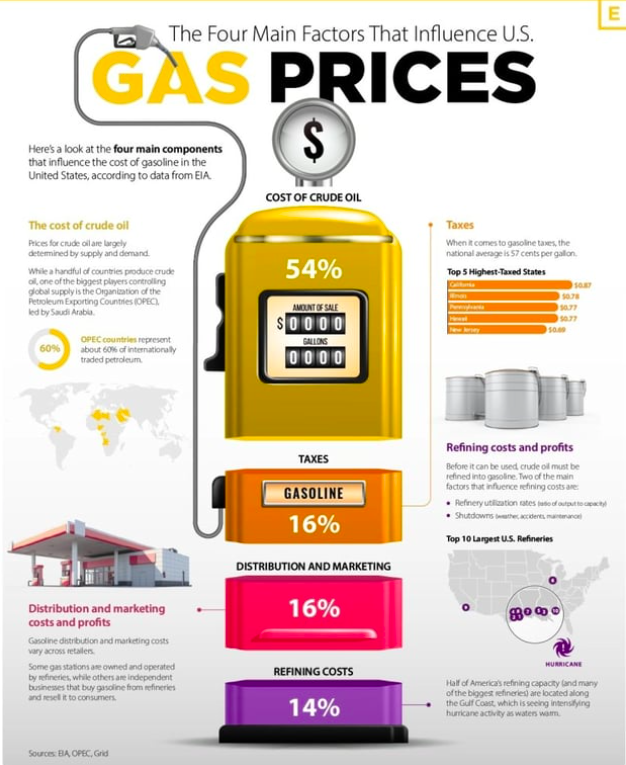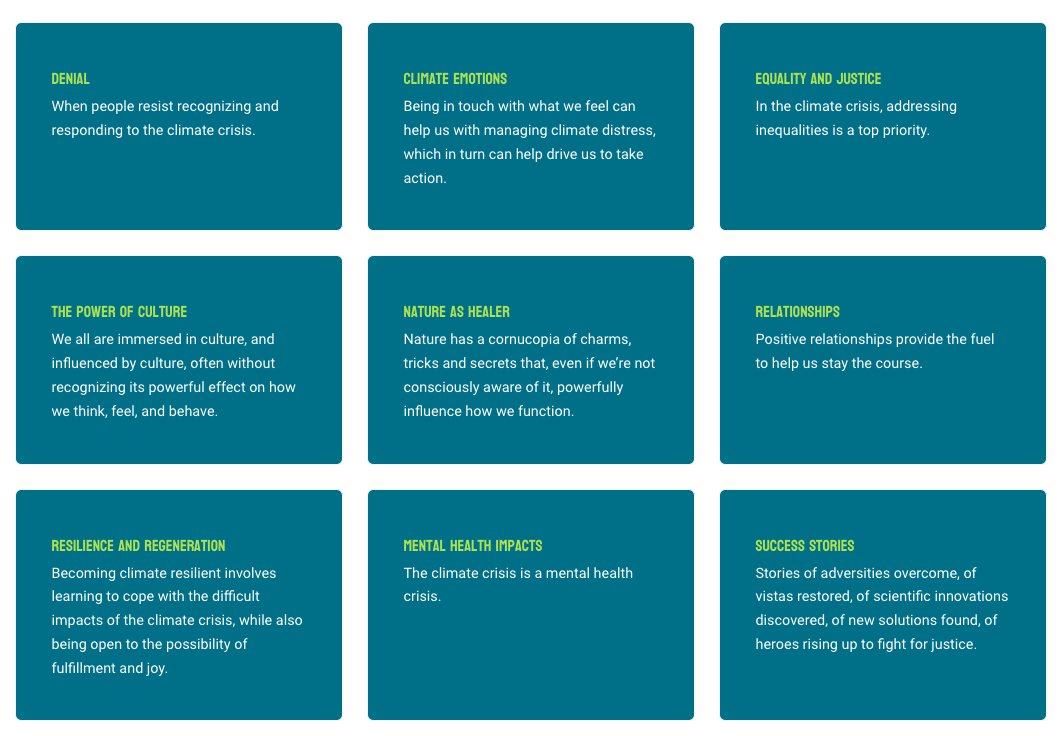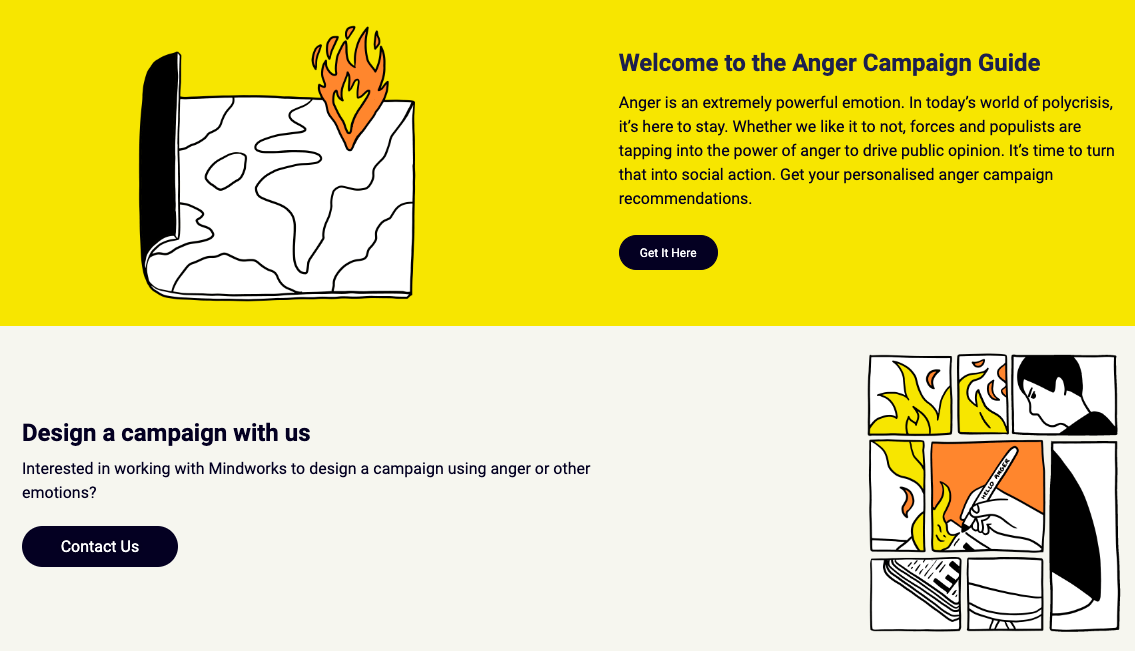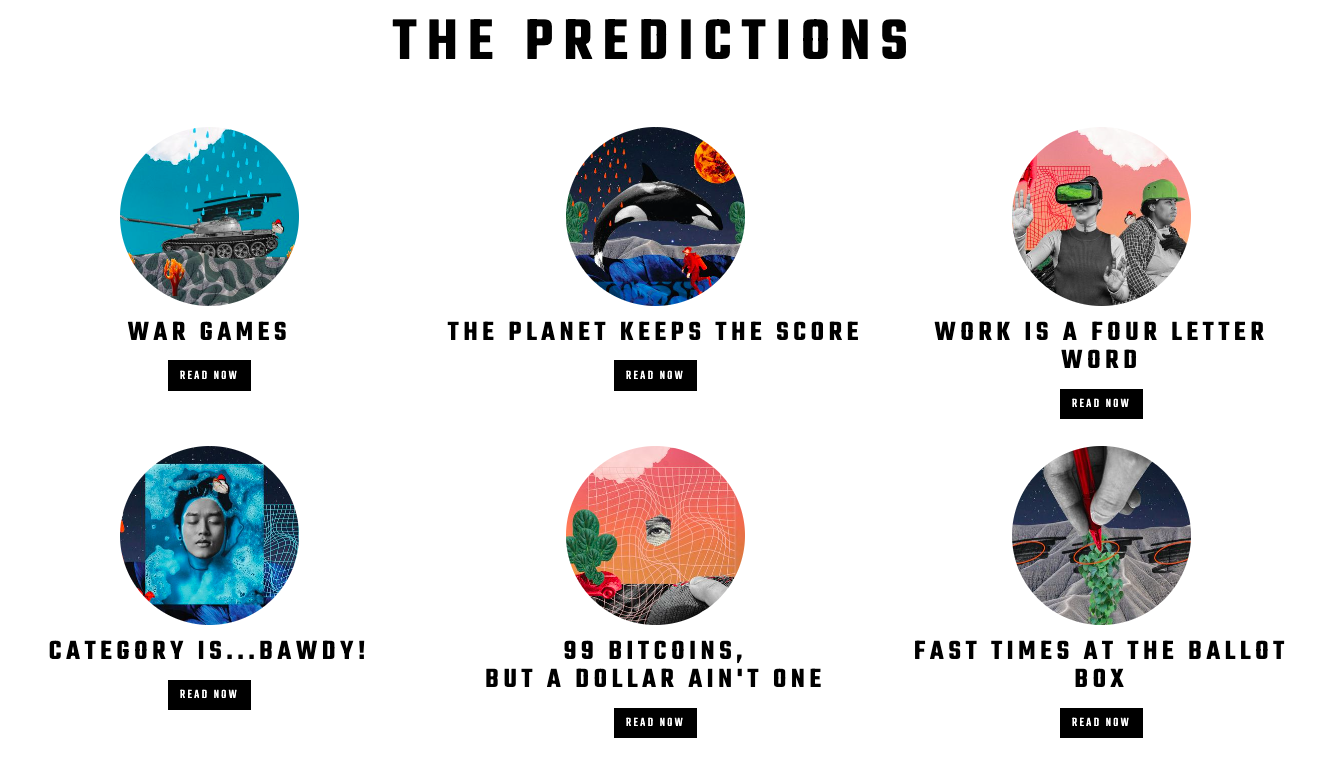Resources
Search below for resources covering the intersection of climate engagement, social science and data analytics.
RESULTS
Pathways to Power Workshop
How are you measuring your organization’s efforts and advances towards meaningful long-term change? Would you like to begin the process of identifying a unique set of metrics that best suit your organizational goals and power-building strategies?
Environmental Polling Roundup - March 29th, 2024
This post includes climate and environment headlines, data points, and key takeaways from recent public polls - including new polling and research on the EPA's vehicle emissions rules, utilities, and people’s emotional responses to climate change.
HEADLINES
Messy Conversations: How to Talk to Kids about Climate Change, with Mary Annaïse Heglar
How should we talk to kids about climate change? The world is beautiful, but the world is changing—and you can play a part in the change. Mary Annaïse Heglar's first book is out today, and it's a children's book about climate change. It's the first of three climate books Mary has coming out in the near future (the other two are a novel, called Troubled Waters, and an essay collection of Black writers on climate). She has been busy writing up a storm since we wrapped up Hot Take (and we've roped her into editing stories for Drilled, too).
Here are the terms and narratives the fossil fuel industry is using to obstruct climate action. The fossil fuel industry haven’t really come up with new spin in about a century, just slightly updated versions of the same old stories on repeat, including: “Climate Policy Makes Gas Prices Higher,” “The LNG Boom Delivers Energy Security and Pricing Stability,” “Fossil Fuel Development Will Solve Poverty in the Global South (particularly Africa),” “Wind Turbines Kill Birds,” “Offshore Wind Kill Whales and Other Marine Species.” Misleading terms are also described.
Notable research of 2023
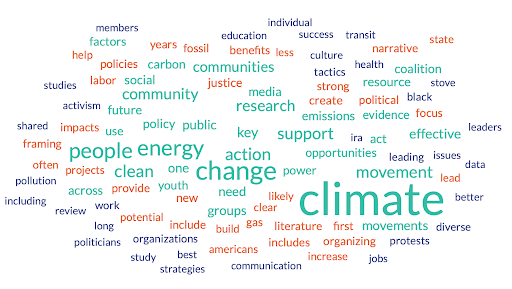
Inflation Reduction Act
On Climate Disinformation
Freezing temperatures and skyrocketing energy costs are knocking on our doors again in Texas, and conversations about reliable renewable energy projects are once again emerging. This has us thinking quite a bit this week about what stands in the way of siting and building renewable projects that are now well funded, thanks to the Inflation Reduction Act. Inevitably we return to the conversation about the role of misinformation.
This resource is a trusted source for current research and thinking on how psychological factors drive the climate crisis, how the worsening crisis affects us psychologically, and what we can do about it. You can browse Ecopsychepedia entries by one of our nine themes: Denial, Climate Emotions, Equality and Justice, the Power of Culture, Nature as Healer, Relationships, Resilience and Regeneration, Mental Health Impacts, and Success Stories.
Anger Monitor 2.0
The Anger Monitor helps harness and redirect anger for positive impact. MindWorks measures the changing quality and quantity of anger to help advocates and organizers understand and leverage this emotion in campaigns. Anger can be destructive, often exploited by populists or extremists for their own agendas. However, it can also be constructive. Many historic social movements were built on anger.
Entering 2024, certain narratives may be most prevalent in America. This report predicts those 2024 narratives, including the following six narratives. First, "war games": the U.S. will continue to chase global geopolitical dominance, centering values such as law and order, security, and the western world as the best. Second, "the planet keeps the score": we are on the edge of climate catastrophe, and the world as we know it may be ending. Third, "work": there has been a surge in worker power, but corporations will argue that they are the entities creating wealth and that unions are bad for the economy. Fourth, "bawdy": people, not the government, should be able to make decisions about their bodies, and while gender is expansive, men and women are biologically distinct. Fifth, debates about capitalism: some will argue that capitalism is dying, but others will argue it's the best system we have, and the role of government may be to intervene or stay out of the market economy. Sixth, "the ballot box": narratives surrounding elections may include the government is corrupt, the country is polarized, democracy is worth saving, or voting is ineffective.
How Do We Know If We Have Transformed Narrative Oceans?
Here’s how to answer the persistent question about narrative change evaluation. The Pop Culture Collaborative is focused on measuring the drops, not the narrative ocean. There isn’t a shared approach that accounts for the diversity of narrative change methodologies and strategies. Evaluation efforts aren’t tracking a field’s ability to build and wield narrative power. If philanthropy wants impact evaluation, we need to help field members pay for it. The result of a multi-year investigation into overcoming these barriers to understanding narratives is INCITE — Inspiring Narrative Change Innovation through Tracking and Evaluation — an adaptable framework designed to equip both field members and funders with shared definitions, measurable objectives, learning questions, indicators, and metrics to understand and assess the impact of their individual culture change efforts as well as the field’s progress towards seeding the narrative ocean with pluralist ideas, narratives, and norms.
Pagination
- Page 1
- Next page

